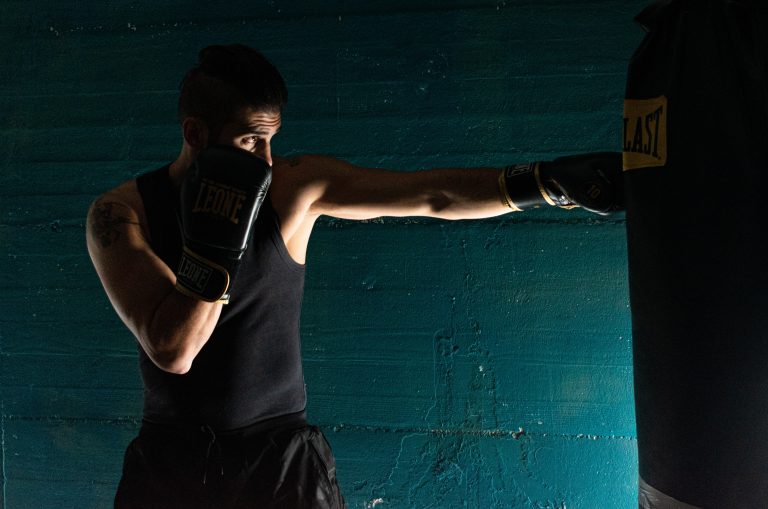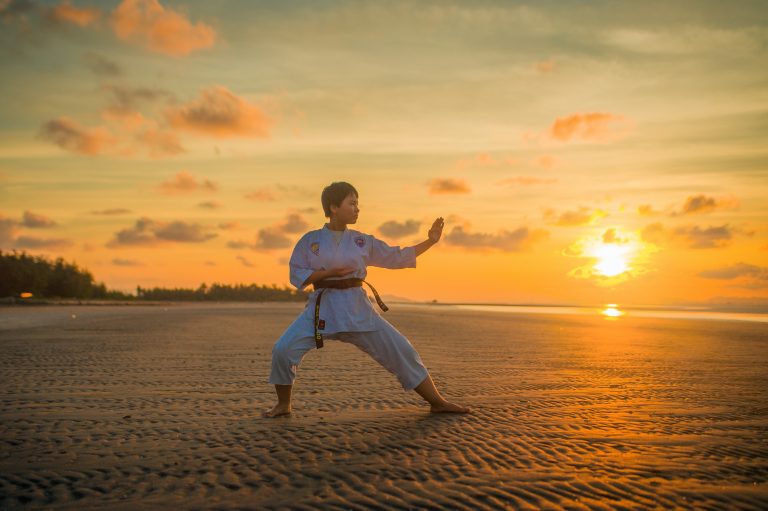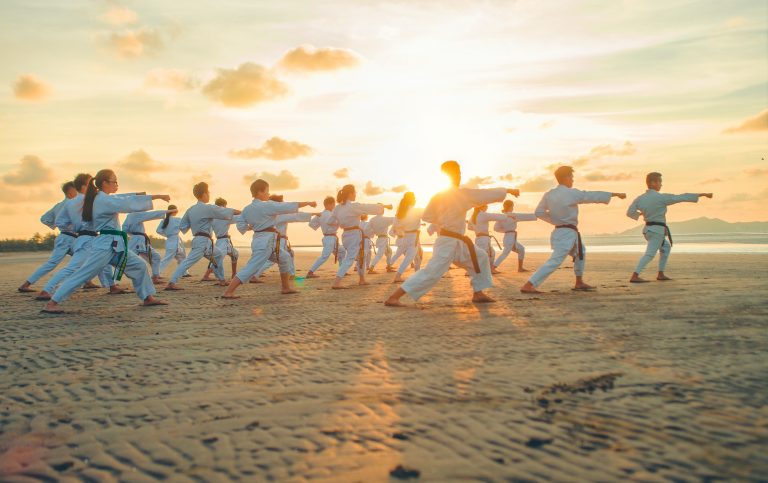Karate lernen mit 40
Karate ist eine Kampfkunst aus Japan, die eine perfekte Kombination aus Körperbeherrschung, Fitness und mentaler Stärke bietet. Wer über 40 Jahre alt ist, denkt wahrscheinlich nicht an Karate als neue sportliche Herausforderung. Aber es ist nie zu spät, um mit einer neuen Aktivität anzufangen. In diesem Artikel erfahren Sie, warum Karate eine großartige Wahl ist und warum es nie zu spät ist, um zu starten.
Was ist Karate?
Karate ist eine Kampfkunst, die auf der Insel Okinawa in Japan entstanden ist. Es ist eine effektive Form der Selbstverteidigung, die sowohl traditionelle als auch moderne Elemente enthält. Karate verbessert die körperliche Fitness, Koordination, Beweglichkeit sowie das Gleichgewicht und schärft die geistige Wachsamkeit.
Warum Karate mit 40 lernen?
Es ist nie zu spät, um eine neue Aktivität zu beginnen. Karate ist eine großartige Option, da es viele Vorteile bietet, die besonders bei fortgeschrittenem Alter geschätzt werden:
- Körperliche Fitness: Karate fördert die körperliche Fitness. Es hilft bei der Verbesserung der Muskelkraft, des Körperbewusstseins, der Koordination sowie der Beweglichkeit. Karate kann zudem zu einem gesunden Gewicht beitragen.
- Selbstverteidigung: Karate ist eine effektive Form der Selbstverteidigung. Es kann das Selbstbewusstsein stärken und die geistige Stärke verbessern.
- Gesunde Bewältigungsstrategien: Karate kann helfen, Stress abzubauen und gesunde Bewältigungsstrategien zu entwickeln. Das Training kann im Alltag genutzt werden, um herausfordernde Situationen besser zu meistern.
Wie anfangen?
Um Karate zu erlernen, benötigen Sie keine besonderen Voraussetzungen. Es ist jedoch wichtig, einen qualifizierten Lehrer zu haben, der Ihnen die richtige Technik beibringt, damit Verletzungen vermieden werden können. Es ist auch empfehlenswert, mit einem Arzt zu sprechen, um sicherzustellen, dass es keine körperlichen Einschränkungen gibt.
Nehmen Sie sich Zeit beim Erlernen der Techniken. Machen Sie Pausen und erhöhen Sie langsam das Trainingsniveau. Es ist auch von Vorteil, mit Gleichgesinnten zu trainieren und von deren Erfahrungen zu lernen.
Fazit
Wie Sie sehen, bietet Karate viele Vorteile für Menschen über 40 Jahren. Es ist nie zu spät, um eine neue Aktivität zu beginnen! Karate fördert die körperliche Fitness, verbessert das Selbstbewusstsein und schärft die geistige Wachsamkeit. Nehmen Sie Kontakt mit einem erfahrenen Lehrer auf und starten Sie ein neues Abenteuer!
FAQs: Karate lernen mit 40
Are you in your 40s and interested in learning Karate? You might have concerns about your age, physical fitness, or even cultural perception. In this blog post, we will answer some of the most frequently asked questions (FAQs) about learning Karate at 40 years of age.
1. Is 40 years of age too old to start learning Karate?
No, it is never too late to learn and practice Karate. Many Karate dojo (training hall) have practitioners aged 40 and above. However, it is important to consult with a healthcare professional before starting any physical activity, especially if you have previous injuries, health conditions, or chronic pain.
2. Can I learn Karate if I am not flexible or physically fit?
Yes, Karate can help improve your flexibility, strength, endurance, balance, and coordination. However, you might need to start with a basic level class and gradually build up your skills and fitness level. Most instructors are trained to cater to different levels of ability and can modify the training accordingly. You can also start with low-impact exercises such as stretching, yoga, or swimming to improve your mobility and cardiovascular health.
3. Do I need any prior experience in martial arts or sports to learn Karate?
No, you do not need any prior experience in martial arts or sports to learn Karate. Karate is a discipline that can be learned by anyone with an open mind and dedication. However, prior experience in other sports or physical activities can help you adapt to the training and understand the principles of body mechanics and conditioning.
4. Do I need to wear a traditional Karate uniform and carry weapons?
Most Karate dojo require students to wear a traditional Karate uniform (gi) and belt (obi) during the training. The uniform is designed to allow for freedom of movement and enhance focus and discipline. However, you do not need to carry weapons or perform advanced techniques if you are not comfortable or ready. Karate training involves a variety of drills, exercises, and sparring that can help you develop self-defense skills and confidence.
5. Is Karate only for men or younger people?
No, Karate is for anyone who is willing to learn and practice it. There are female and older Karate practitioners who have achieved high ranks and won international competitions. Karate training can help improve self-confidence, discipline, respect, humility, and other life skills that are beneficial for people of all ages and genders.
6. What are the benefits of learning Karate as a 40-year-old?
The benefits of learning Karate as a 40-year-old include:
- Improved physical health and fitness, such as cardiovascular health, muscle strength, flexibility, and coordination;
- Lowered stress level and better mental health, as Karate training can help release endorphins, reduce anxiety and depression, and improve concentration and self-awareness;
- Enhanced self-defense skills and confidence, as Karate emphasizes on effective but non-violent techniques to overcome or avoid conflict;
- Opportunities for socializing and networking, as Karate dojo often have a friendly and supportive community of practitioners of different ages, backgrounds, and professions;
- Challenges and achievements, as Karate training can be a lifelong journey of self-improvement and personal growth, with occasional grading exams, tournaments, and demonstrations to showcase your progress and skill level.
Conclusion
Learning Karate at 40 years of age can be a fulfilling and rewarding experience that can positively impact your physical, mental, and social well-being. By addressing some of the most common concerns and questions, we hope that this blog post has helped you gain a better understanding of what Karate is and how it can benefit you. Remember to consult with a healthcare professional, find a reputable and supportive Karate dojo, and commit to your training with patience, humility, and passion.
Inhaltsverzeichnis






